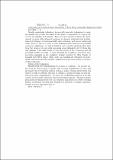| dc.description.abstract | Genetic engineering technology has recently generated techniques for making specific and precise alterations to the genetic composition of crops grown as food for humans and animals. These advances should facilitate the development of crops with enhanced resistance to diseases, pests and bad weather, improved tolerance of environmentally safer herbicides, and greater nutritional value. However, the very power of these techniques has raised fears of potential ecological catastrophe, as well as religious and aesthetic questions that arise from the prospect of vegetables containing genes ultimately derived from fish and animals. This essay briefly reviews the nature of the technology and its potential benefits and risks. It then discusses the regulatory framework with particular emphasis on the regulatory strategy adopted by FDA. Finally, it suggests that FDA's stance, while legally and scientifically defensible, is strategically misconceived in that stricter regulation would promote public acceptance of this technology. | en |


